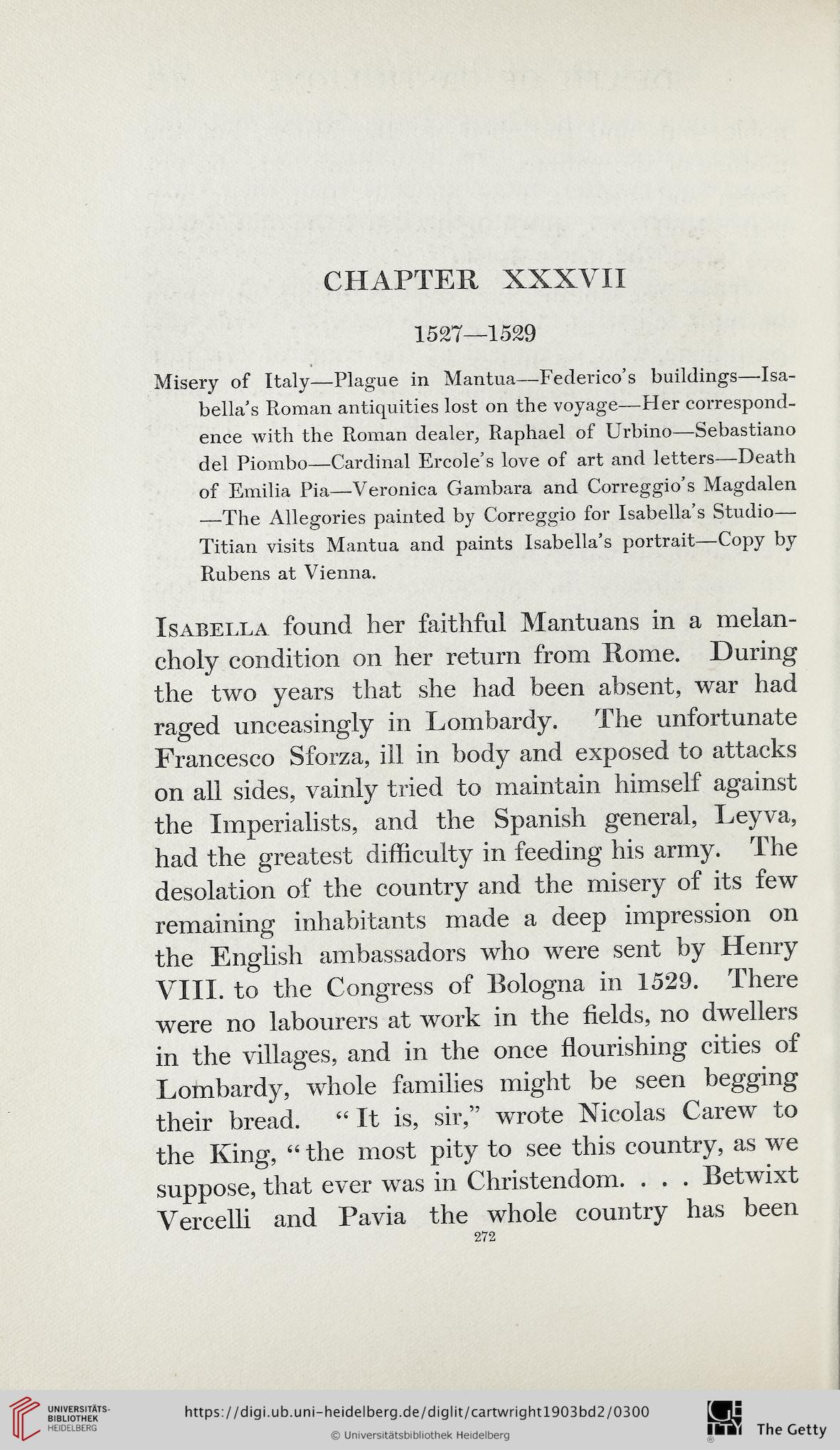CHAPTER XXXVII
1527—1529
Misery of Italy—Plague in Mantua—Federico’s buildings—Isa-
bella’s Roman antiquities lost on the voyage—Her correspond-
ence with the Roman dealer, Raphael of Urbino—Sebastiano
del Piombo—Cardinal Ercole’s love of art and letters—Death
of Emilia Pia—Veronica Gambara and Correggio’s Magdalen
—The Allegories painted by Correggio for Isabella’s Studio—
Titian visits Mantua and paints Isabella’s portrait—Copy by
Rubens at Vienna.
Isabella found her faithful Mantuans in a melan-
choly condition on her return from Rome. During
the two years that she had been absent, war had
raged unceasingly in Lombardy. The unfortunate
Francesco Sforza, ill in body and exposed to attacks
on all sides, vainly tried to maintain himself against
the Imperialists, and the Spanish general, Leyva,
had the greatest difficulty in feeding his army. The
desolation of the country and the misery of its few
remaining inhabitants made a deep impression on
the English ambassadors who were sent by Henry
VIII. to the Congress of Bologna in 1529. There
were no labourers at work in the fields, no dwellers
in the villages, and in the once flourishing cities of
Lombardy, whole families might be seen begging
their bread. “ It is, sir,” wrote Nicolas Carew to
the King, “ the most pity to see this country, as we
suppose, that ever was in Christendom. . . . Betwixt
Vercelli and Pavia the whole country has been
272
1527—1529
Misery of Italy—Plague in Mantua—Federico’s buildings—Isa-
bella’s Roman antiquities lost on the voyage—Her correspond-
ence with the Roman dealer, Raphael of Urbino—Sebastiano
del Piombo—Cardinal Ercole’s love of art and letters—Death
of Emilia Pia—Veronica Gambara and Correggio’s Magdalen
—The Allegories painted by Correggio for Isabella’s Studio—
Titian visits Mantua and paints Isabella’s portrait—Copy by
Rubens at Vienna.
Isabella found her faithful Mantuans in a melan-
choly condition on her return from Rome. During
the two years that she had been absent, war had
raged unceasingly in Lombardy. The unfortunate
Francesco Sforza, ill in body and exposed to attacks
on all sides, vainly tried to maintain himself against
the Imperialists, and the Spanish general, Leyva,
had the greatest difficulty in feeding his army. The
desolation of the country and the misery of its few
remaining inhabitants made a deep impression on
the English ambassadors who were sent by Henry
VIII. to the Congress of Bologna in 1529. There
were no labourers at work in the fields, no dwellers
in the villages, and in the once flourishing cities of
Lombardy, whole families might be seen begging
their bread. “ It is, sir,” wrote Nicolas Carew to
the King, “ the most pity to see this country, as we
suppose, that ever was in Christendom. . . . Betwixt
Vercelli and Pavia the whole country has been
272




